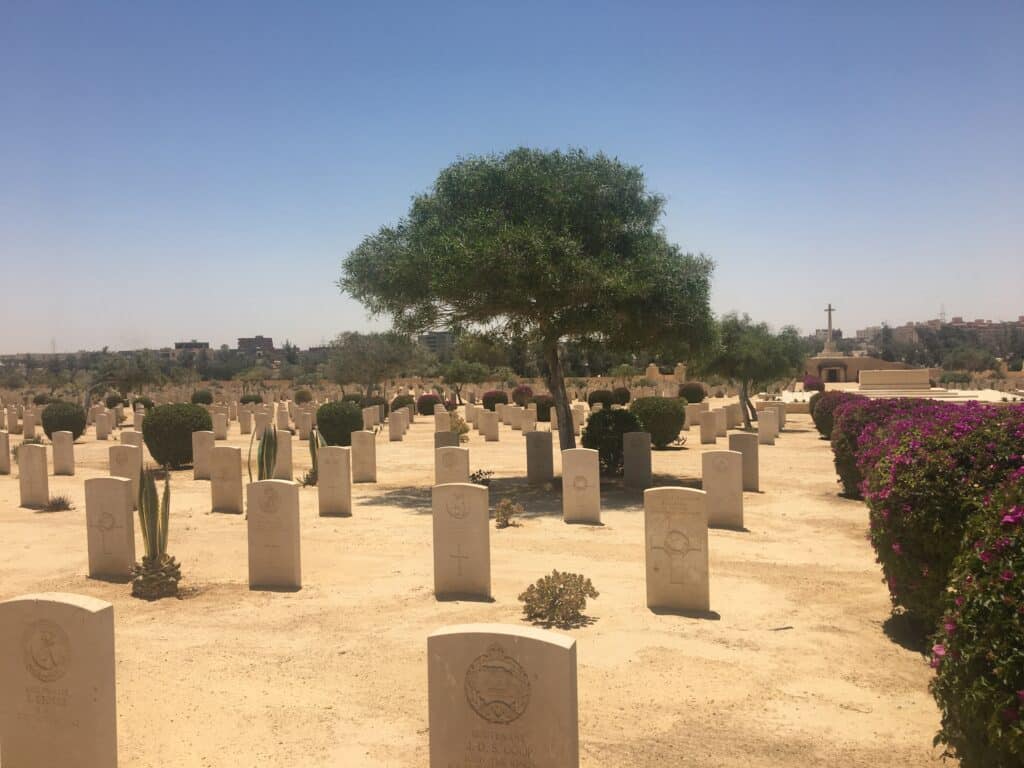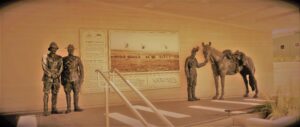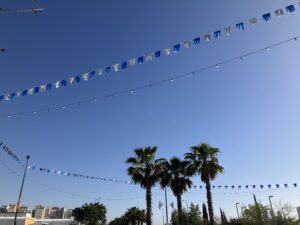April 25 of each year is ANZAC day, commemorating the brave Australians and New Zealanders who gave their lives, many in battles that would seal the fate of Israel. The Australian and New Zealand Army Corps (ANZAC) not only helped fight alongside Britain against the Turks during the First World War, but also against the Nazis in the second. The victories they helped secure helped pave the way for the Jewish state to be reborn.
The Muslim Ottomans of Turkey had been ruling the region for centuries. Church bells had been silenced and jiziya taxes imposed on non-Muslims. But after 400 years the empire was starting to crumble. Despite attempts to steady itself with alliances, currying favor with the West and modifying their stance towards Christians and Jews, Turkey was no longer the superpower it once was.
However, overthrowing the colonial power would not come easy. If it wasn’t for the ANZACs, the chances are that Israel wouldn’t be here today. So it’s fitting that ANZAC Day in April is so close to Israel’s Independence Day, which begins the evening of May 1 this year.
It was on April 25, 1915, that troops from Australia and New Zealand arrived to fight in Gallipoli, Turkey – an eight month long conflict they would ultimately lose with heavy casualties, but the battle had just begun.
The battle of Beersheba and the charge of the Light Horse brigade
The ANZAC are particularly famous here in Israel for their exploits in Beersheba in the First World War. The British and their allies were trying to conquer Gaza, push the Turks back, and liberate Jerusalem, as General Allenby described it. They had tried and failed twice under a different general, and hard fighting in desert conditions meant that both the troops and their horses were running out of water. However, when Allenby was entrusted with leading the armies he came up with a daring new battle plan.
Having surveyed the water supplies in the surrounding area, they realized that Beersheba had an unlimited source, with abundant wells as there were in the time of Abraham. However, the town had been heavily fortified by the Turkish army. Fooling the Turks into believing that they would try to attack Gaza again from the West, the strategy was to instead charge on horseback directly at the troops in Beersheba, overcoming them in their trenches. It was almost a kamikaze style plan of attack, but left with no water for well over two days, they had few options left.
Speed was critical. The battle had to be fought and won before nightfall, and that’s exactly what happened. In the last such charge of its kind in the world, the so called Light Brigades (with no heavy arms or equipment) could quickly traverse the five kilometers of ground towards the troops, getting too close to the Turkish trenches for the canons to fire at them.
The ANZAC troops then bravely fought hand-to-hand until the Turks retreated all the way up north, opening the way to Jerusalem, and leading to Allenby’s famous entry through Jaffa Gate soon after, in December, 1917.
Today there is an ANZAC Memorial Center where it all took place in Beersheba, Israel, and you can visit the cemetery which includes the graves of the Australians and New Zealanders who gave their lives in the battle that would prove to be critical to the existence of Israel.
The battle of El Alamein and the power of prayer
Another significant contribution of the ANZACs was in 1942 at El Alamaine on the northern coast of Egypt during the Second World War. If it wasn’t for their courage and sacrifice fighting the German forces in Egypt, there’s every chance that the promise of a Jewish homeland in Israel would have been stillborn. Recalling the battles in prayer that were going on while the allies fought the Nazis, Doris Ruscoe explains how a man named Rees Howells led people to pray specifically for this situation. She writes,
“The war had spread to North Africa and the Holy Spirit made it clear to Rees Howells that Palestine itself, the Holy Land, was in danger, threatened by a pincer movement from two directions.”
Howells and his team of intercessors understood that winning the battle at El Alamein was crucial to God’s purposes in the reestablishment of Israel. The British and ANZAC troops were up against forces led by Nazi field marshal, Erwin Rommel. The allies fought bravely and sacrificially, determined not to allow German troops to reach Cairo and attack the Holy Land from Russia in the north and Egypt in the south. The intercessors also got to work, praying for victory:
“If Rommel took Cairo and then the German forces swept south through Russia, the fate of the Holy Land would be sealed and there would be no prospect of a national home for the Jewish people when the war was over. So the enemy was held back in Russia. When the war came to a head in North Africa, and the vital battle of El Alamein was taking place, we were on our knees all day and it was in the afternoon meeting that the Lord assured us of victory, a victory confirmed later as we heard of the success of the Allied forces under Montgomery.” ~ Reminiscences of Rees Howells The War Years, 1939-45 by Doris Ruscoe
Rommel wrote a letter to his wife in 1941, ironically dated April 25 which is ANZAC day, describing Australian soldiers as “immensely big and powerful men, who without question represented an élite formation of the British Empire, a fact that was also evident in battle.”
After the second battle of El Alamein, he conceded, ”If I had to take hell, I would use the Australians to take it and the New Zealanders to hold it”.

Today you can go and visit this large cemetery in Egypt with many graves of British and ANZAC troops who fell in the fight against the Nazis, foiling their plan to march on to the Holy Land.
In his book on the subject, “Anzacs and Israel, A Significant Connection”, Kelvin Crombie relays the words of English Baptist minister, James Bicheno, who wrote in 1798:
“Now we are looking for the restoration of the scattered Jews …. to pretend to determine, positively, how this ought to be brought about, would be arrogance; the probability being that the Turkish power being overturned in Palestine, by some invading enemy, that enemy will think it politic and necessary, for the promotion of its own schemes, to invite the Jews to take possession of their ancient patrimony, and to make one cause with themselves. For without the support of some powerful nation, how are the dispersed, disorganized Jews, to collect their numbers and unite their energies, so as to produce the effects predicted? We know God can work miracles; but we know also that he usually works by second causes.”
Today, more than two hundred years later, we have seen what miracles God did to collect the Jews back to their land, and also the second causes He worked through. God bless the ANZACs and all that they have done for Israel!
Main picture by Yacov Rosenblum יעקב רוזנבלום – Yacov Rosenblum יעקב רוזנבלום, CC BY-SA 4.0, https://commons.wikimedia.org/w/index.php?curid=76192578















